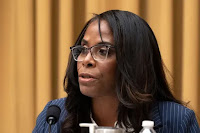A good portion of Rabbi Burton’s book pivots on the intriguing dialogue between Reish Lakish and Rabbi Yohanan in Tractate Yoma of the Babylonian Talmud.
Reish Lakish had great disdain for the Jews of Babylonia, as he held them responsible for the fact that in the Second Temple era there was not the level of full-fledged prophecy that flourished during the First Temple era. All that remained was a reduced level of divine inspiration known as “bat kol,” an “echo.”[1]
Said Reish Lakish: “If you had made yourselves as a wall (ke-homah)[2] and all of you had ascended [to the Land of Israel] in the days of Ezra,” then prophecy would have resumed.
Rabbi Yohanan’s rejoinder reads:
“That is not the reason. Even if all of them would have ascended [to the Land of Israel] in the days of Ezra, the divine presence (Shekhinah) would not have rested in the Second Temple, for it is written, ‘God will broaden Japheth, and dwell in the tents of Shem’ [Genesis 9:27]. Although God will broaden Japheth, the divine presence rests only in the tents of Shem.”
Rabbi Yohanan was alluding to the fact that the Second Temple was built under the auspices of Cyrus the Great, a Persian. And the Persians are descendants of Japheth. And so, unlike the First Temple, the Temple of Solomon (a Semite), which was conducive to prophecy, the Second Temple was perforce bereft of the spirit of prophecy.[3]
That Rabbi Yehudah Halevi and Reish Lakish are of one mind when it comes to the subject of ‘aliyah and the resumption of prophecy, goes without saying. In the Book of Kuzari this is clearly enunciated:
It is the sin which prevented from being fulfilled the divine promise with regard to the Second Temple, “Sing and rejoice, daughter of Zion, for behold I am coming and I will dwell in your midst, declares the Lord” [Zechariah 2:14]. The divine presence was ready to rest upon them as at first, if they had all willingly consented to return [to the Land of Israel]. But only a part was ready to do so, while the majority and the aristocracy remained in Babylon, preferring dependence and slavery, and unwilling to leave their houses and their affairs.[4]
Rabbi Burton is not content aligning the Kuzari with Reish Lakish. He would have the Kuzari embrace Rabbi Yohanan as well.[5] The reader will appreciate that this is no mean feat. How Rabbi Burton would go about accomplishing this, we will discuss in a moment.
















